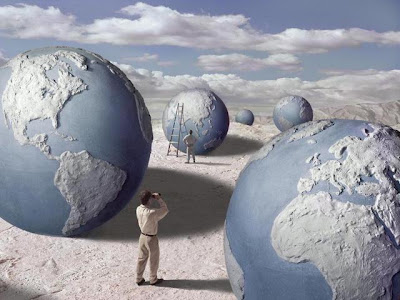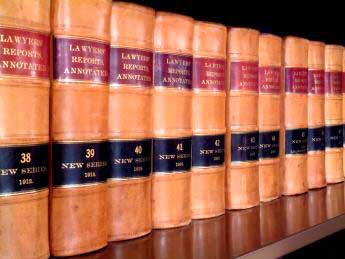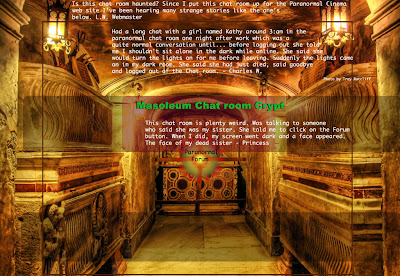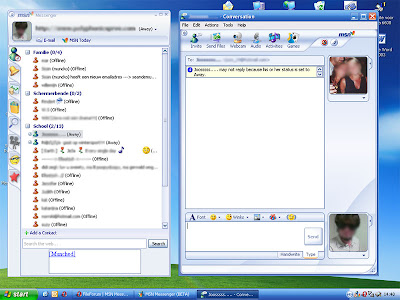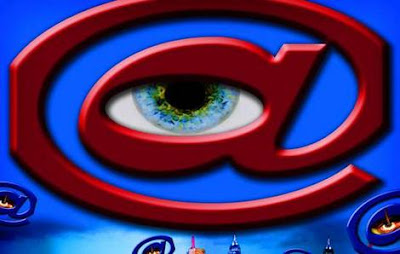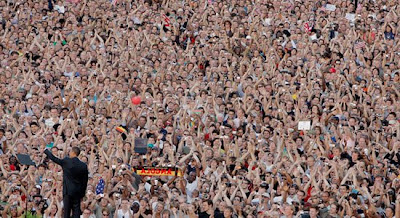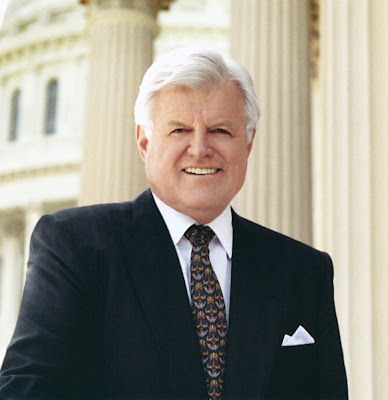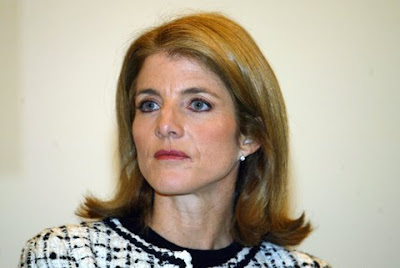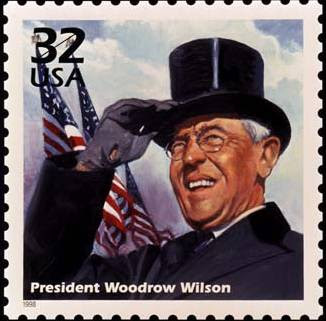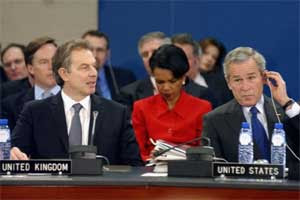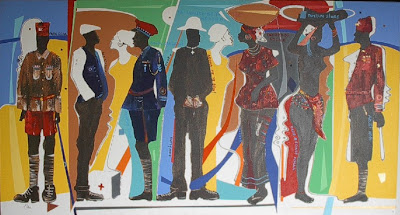A tribute to all victims of crimes without causeMy students know that I am a vivid watcher of movies and that at many occasions I derive stuff for my lectures out of them. Invariably a good story is the mother of many good thoughts.
A few nights ago I was with some young friends, and we watched a movie called
Spun. The people in this movie, men and women in their late twenties, all were wasting their lives. They moved pointlessly, largely to secure (or ‘score’) a sufficient quantity of drugs to trade and drugs to use. They could have been hippies in the early seventies or junkies in any other period, up to today, coming from nowhere and having no prospect whatsoever of a stable, sensible occupation, let alone of any escape from their marginal existence. The movie was highly reminiscent of another intoxicated movie called
Fear and Loathing in Las Vegas, in which the two main characters pass through the story soaked with marihuana and cocaine. They are the kind of movies that make you stoned without taking a single milligram of the stuff yourself. You swallow the misery on the screen as if it is your own depressing existence.
 A scenefrom Spun
A scenefrom SpunA life without prospect is not simply a subject of fiction. We can see people in our own world who have nowhere to go and live in chronic desperation. There are those who vegetate in utter loneliness even when they share their nightmares with other unfortunate individuals, like the young people in
Spun. They have no idea what to do, they have no sense of their larger environment, or rather their sense has become increasingly distorted through their chronic disenchantment with life. Deep down many harbor a strong grudge against the world outside, or against particular elements of that world: parents or older people, school, politicians, authority, against everything ‘normal’. Most of their actions are on impulse, both positive and negative – especially negative to others – when grudge becomes anger and anger turns into hate. I remember walking in the center of Amsterdam one night with a few friends. In front of us was a small group of young men of apparent Moroccan background. In passing I said: “Good evening gentlemen”. Immediately one of the young men, a boy really, turned around, facing me with a vicious, angry expression and waving his fists in a threatening way. He yelled::
“Whaddaya want!?” I gently explained that I wished him a pleasant evening. Again he waved his fists at me. We then took a few steps aside and passed this group in some haste, continuing to enjoy what I can call
my Amsterdam too. How does anger and hatred make people deaf for any sign of goodwill? What did I represent in the eyes of these young men?
If a world of anger and suspicion starts to become violent, the context is created in which people become capable of horrendous acts, such as brutal theft and other physical violence, murder even.
It is highly unfortunate that such senseless desperation only recently struck an innocent young Dutch women working on the Caribbean island of Bonaire. She met her end not because of some passionate rage. Her killer simply wanted her possessions, her bag and whatever was in it, and when she tried to defend herself he smothered her, out of fear. From the way I understand it, he had no intention to kill her, it just happened as he didn’t know how to stop and how to silence her otherwise for the outrage he had already committed.
And a few days ago one of the students came to me in great anxiety telling me that the morning before she was robbed of her laptop and her cell phone – in her own home. It turned out, as was corroborated by a witness who lives on the other side of the street, that two young men of Moroccan origin had entered her room through the window (she lives on the ground floor, street side), quickly snatched the two items from her desk and disappeared the way they had come. It all happened in an instance, just as she was taking a shower. The window had been slightly open, but the shutters were down. They had cut their way through it. In the end, she said to me, the theft was one thing (her parents had already offered their help to replace them); what had shocked her was the brutal intrusion of her privacy. Although I didn’t ask this in so many words, I am quite sure that she realized the danger that she would have faced had she caught the two burglars when they were still in her room. I guess she was lucky in a way, for it could easily have turned much more violent.
In the movie
Spun one of the main characters has fun with a girl and she is playfully chained on a bed, when suddenly he is called away. As he doesn’t want to lose her, he simply leaves her as she is, naked, chained and mouth taped, and he takes off. The girl has no clue what to make of it and she grows increasingly fearful the longer he stays away, even fearing for her life, for this is the kind of situation in which many women have ultimately faced the vicious grin of a killer. We are led to believe that the young man, stoned as he may be, has no ill intent and that he will return, either to continue his bedroom session or to free the girl from her chains and let her go. At one point he does return and offers his apologies, yet keeps her chained while trying to comfort her. She manages to cry out and curse him for being such an asshole – after which she realizes that she has a better chance if she would go along with him and let him cuddle her. Again he is called out, and again he tapes her mouth and eyes and leaves her chained on the bed. Now she becomes really desperate. It takes a while before the situation is resolved. The movie keeps you in suspense about the girl’s ultimate predicament. She finally manages to escape. In the end it is another girl who unexpectedly becomes the oblivious victim of a suicide bomb explosion.
Many tragedies originate from some passion becoming the obsession of a devilish phantom inside, who smothers every remaining reason and compassion and who unleashes some brutal force that sees no other way than to silence adversity forever. It is ultimate moment of broken trust, when innocent play turns into horror or when an innocent student sees her privacy ripped away by senseless boys. We all feel raped to some extent. It can happen to you too, and to me, at any time.
Our first response to such incidents – and outright tragedies – is that, surely, the culprits must be caught and they should not escape their punishment. If anything, our sense of justice must be satisfied. In our civilization we do not take an eye for an eye, but any outrage against the order of society must be repaid in kind, one way or the other. And there is increasing concern about the aggression and disorder caused by certain elements in our society, such as those young men – many of them just children. Increasingly in our society there is a general resentment against people of particular backgrounds, like the Moroccan boys, or indeed, against young people from our own Caribbean islands. We rather wish they were not here, that we could somehow send them back to where they came from or where their parents came from. Most of them are actually born of our own soil.
In the end, the delivery of justice nor the initial assessment of the truth – of what really happened at the spot – can be limited to a mere reflection of the crime itself. We have to establish truth and justice in its wider context. We have to accept that the most effective response may not necessarily be punishment and retribution. We should recognize that in a wider context we see the mirror of a far greater failure than the single failure of young individuals (or their parents) to grow up as responsible people or to align with the general order of society. It is always our failure too.
We live in a time of excessive wealth and of excessive materialism. Most of it is fascinating too, of course, but much of the opportunities we create, both in terms of education and care and in terms of jobs and income, is simply unreachable for quite a few young people, particularly those who are caught in the middle of geographic and cultural transition. Their days are filled with pictures of a far away Dreamland, the birthplace of their souls, their island in the Sun or the arid mountains of Morocco, and with the reality of a world which in their own mind is hostile, uninviting, confusing and essentially inaccessible. The waving fists of the young man in Amsterdam were the expression of a boy who saw me as the symbol of everything that was denied to him.
I am not suggesting that we should harbor a sense of guilt because of this. I do not feel personally responsible for the lack of prospect in the lives of just anyone, or for the perceived hostility of my world. The only thing I suggest is that in order to free our society of aggression and hatred, we should always aim to address the situation at its very roots. And this inevitably includes aspects for which we do hold responsibility, whether individually or at the level of our political system. At least we have the opportunity – and the responsibility – not to ignore but to properly address the wider context – the wider ‘truth’ – of any incident that passes our way, for instance when we are a lawyer directly dealing with such cases and even when we are a prosecutor. This applies to local theft and murder as much as to the greater outrages of our time such as genocide and terrorism.
We should also recognize that at the other end of the scale there are those who take, or rather: grab, what they can get their hands on, far in excess of what they deserve, or far in excess of any reasonable distribution of affluence within society at large. The current ‘global financial crisis’ is the immediate outcome of the cumulated greed of people whose lives already are incomparably comfortable. You don’t need to be a communist or some other leftist idealist to take exception to irresponsible speculation or to the sky high bonuses of men (indeed, men only) who have the power to intimidate their environment into paying them. And you do not have to abandon the principles of a free market economy to be critical of the enormous spoil it creates in its wake or the gross imbalances it allows in the attribution of its benefits. Markets, as people, are imperfect, however close we get to full competition based on the fullest information both in the hands of customers and of competitors. Our greatest imperfections as human beings are our greatest weaknesses, our tendency to succumb to temptation, our greed, selfishness and so on. It takes hugely great minds to effectively control these innate weaknesses.
For me, when it comes to it, trust is first of all the assumption that all of us accept the basic rules of our society – the basic rule of law. This does not necessarily mean that we have to follow each and every rule at any given time (for instance: that we stop at every red light even if there is no other traffic in sight). There are too many rules for that matter. Nor does it mean that we are capable at all times to live up to our commitments. And I am even prepared to take a ‘yes’ for a ‘no’ if circumstances so dictate. Each of us will experience this daily struggle between the promises we make and our actual possibilities to honor them. I don’t mean this kind of trust, however important it may be to us.
What I mean is the basic trust that every other person essentially cares, that those whom we associate with do no willfully inflict us any harm. For instance, it is the kind of trust that was willfully broken between one of our own students and a man whom he thought was his friend, someone he had known from his earliest youth. As a result, this student now faces the serious possibility of being stripped of his freedom and of being convicted for something he emphatically has not done. It is at such moments that any of us would take the greatest trouble to help avoid such predicament, as in this particular case we at least have been able to help secure the best possible judicial attention, at the highest possible level, up to and including the European Court of Justice. Well, if that is not a profound satisfaction of the rule of law!
I am writing this essentially as a tribute to anybody who falls victim to somebody else’s misery, to somebody else’s misguided and perhaps even rotten life. But of course I am writing this too as an inspiration to all those who aspire to respond to such cases, whether in the delivery of justice or in the amendment of the wider, underlying societal injustice. Our contribution can take many forms.
And perhaps we should not simply dwell on the nature and causes of human disenchantment and of lives wasted alongside the spoils of our modern world, and allow ourselves to be inspired by some vision of beauty and happiness, not just for the happy few but for all. For we should never stop to contemplate such utopia, however unreachable it may seem. Each of us can make just this tiny contribution that, who knows, one day will prove to be the proverbial butterfly creating a hurricane. So what should inspire us?
This personal essay basically started as a recommendation to watch certain movies. And as I was contemplating this question about some contrasting inspiration, I asked myself: if Spun and Fear and Loathing in Las Vegas are the kind of movies that project the darkest possible outlook of our existence, when our fantasies essentially become self-destructive, what then are the movies which do exactly the opposite and project the ultimate positive, creative fantasy?
 Legend of Spyro: Dawn of the Dragon
Legend of Spyro: Dawn of the Dragon
I realized that these movies in fact arrive in abundance. And they are not just movies. Imagine a life in utmost positive fantasy, the ultimate frontier of creativity where you can ‘imagineer’ any possible world. It is the world of the creators of animated movies and computer games which saturate millions of laptops and Playstations across the globe in an ongoing flow, one after the other. Imagine what life that must be, to get up every day and let your mind travel the widest universe of your imagination, and actually do something profitable with it. Similarly, I highly enjoy watching animated movies and I do occasionally play with Playstation (I have a good young friend who has lured me into it). Just as an example, you can watch any of the recent animations, such as
Ratatouille, Wall-E, Horton, Bee-movie and so on and truly relish in their colorful expression of joy or even happiness, whatever the story, as they all have a pleasant ending.
This joyful feast of animation doesn’t preclude more serious messages. In fact I believe that many animations are made by people who make fun in a highly creative way but who cherish more serious thoughts too (moreover, isn’t enjoying good fun an essential prerequisite of the ability to be serious?). Again let me illustrate this with an example out of one of the movies,
Horton and the Who’s. The happy and gentle elephant
Horton faces gross injustice in his effort to bring the world of the
Who’s - which is an invisible world of tiny little people on a spec – to safety. Horton is met with disbelief and distrust, especially of one dominant female kangaroo, who refuses to accept that such tiny world could even exist and who sees Horton’s dedication to ‘people on a spec’ as nothing less than a threat to the order of her community, which she wishes to preserve at all cost. I am reminded of the happy ballads, songs of love mostly, of four long haired English boys, calling themselves
The Beatles, who created an outrage among the parents of my generation, over forty years ago. It is hard to imagine, that these lovable songs actually unsettled the entire established order of my time. Even the many young people of the sixties who ended up in hefty scuffles with the police, in actual fact started their actions of protest and resistance out of sheer playfulness, not out of malice. Provocation was the game of my youth, not aggression. In the end
The Beatles won, and so did
Horton the elephant.
Anyway, the point here is that there is no limit to our imagination, if only we dare to mobilize it. Anyone can be inspired by the examples in history, such as
Walt Disney and
The Beatles, and by the examples in our present time. There is no limit to the imagination of a better world, in which human beings can truly enjoy their lives. And there is no actual need to succumb to the dictates of consumerism, to material greed an affluence, or to lose our hope and self-respect out of mere material adversity. The greatest wealth we can experience is the wealth that comes out of our own hands, however hard fought.
We do know however that people who do succumb to it and who can not envision their lives other than by comparison with the fortunes of others, are ultimately capable of great atrocities. Rather than merely threatening with punishment whoever transgresses the basic rules of civilization we should seek to offer the perspective of happiness and use our creative potential to such perspective as much as we can, even if at the same time we need to establish our response to the damage that has already been inflicted. Similarly, when we face the challenges of cultural and ethnic diversity, we should not emphasize the differences and the problems, we should emphasize everything that is pleasant and joyful about a world in which we can celebrate our differences, and make integration a thoroughly inviting party for all.
Such are the thoughts and musings that can arise out of fiction. Whoever would think of Johnny Depp or Jim Carrey (
Horton’s voice) to be the agents of mindful excursions to the psychological and judicial dilemma’s of our time? Basically I think the answer is that moviemakers, animators and game creators all share the same profound interest, each in their own special way, that sustains a successful lawyer, legislator or judge. We may have to accept fate and misfortune, but we do not need to accept willful malice, neglect or indifference, at any level, in any cause, anywhere on our planet.
As a conclusion I wish to share one observation perhaps with great emphasis. Whatever miseries, misfortunes or outright trauma’s we may have to overcome in our lives, we still have the choice to make these our strengths and not our fatal weaknesses. I have seen many beautiful young people come out of a life of abuse and neglect. It is absolutely possible to offer so many more young people the same perspective of beauty.
True justice helps to serve the truth. Every unfortunate incident must be assessed against its wider context, its true causes and circumstances. In the end, we should not be satisfied simply by the actual response – through punishment or retribution – to any given incident, but by the degree to which we have been able to help avoid such incident recurring in the future. All of us are able to create our own stories which can become the parents of yet another generation of good thoughts.



